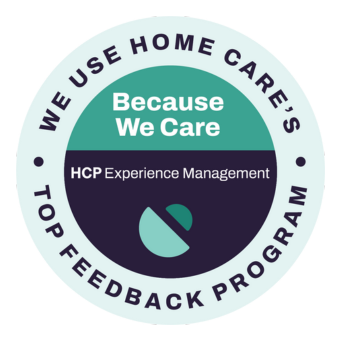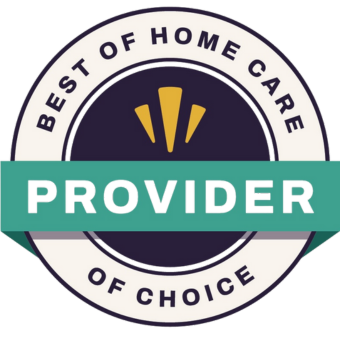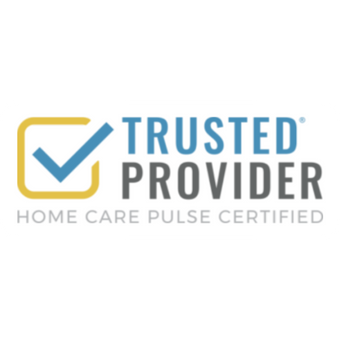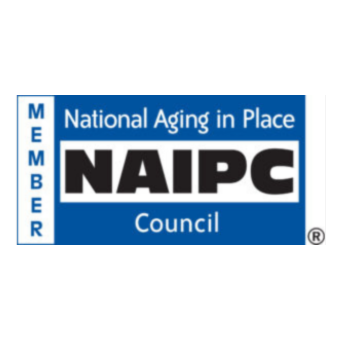Elder abuse is a common problem that impacts roughly one in ten older Americans every year. Sadly, those closest to the elderly victims are often the perpetrators of the mistreatment, including overworked informal caregivers. There are several types of elder abuse, and in far too many cases, the victim’s family isn’t even aware that they are being mistreated. As a concerned party, being able to identify the telltale signs of elder abuse is essential for your loved one’s continued health and wellbeing.
What is Elder Abuse?
According to the CDC, “Elder abuse is an intentional act or failure to act that causes or creates a risk of harm to an older adult” that is age 60 or older. They further point out that “The abuse often occurs at the hands of a caregiver or a person the elder trusts.”
Based on statistics compiled by the U.S. Department of Justice (DOJ), roughly 10% of all American seniors are victimized by elder abuse in an average year, with some older adults simultaneously experiencing more than one type of abuse.
Types of Elder Abuse
According to the National Center for Elder Abuse (NCEA), there are five forms of abuse:
- Physical abuse
- Sexual abuse
- Emotional or psychological abuse
- Financial abuse
- Neglect, including self-neglect and abandonment
Elder Abuse Signs to Watch for
It’s important to remember that abusers who target the elderly are often someone who the senior trusts. Elder abuse may present differently based on multiple factors, including the type, degree, duration, and perspective of abuse experienced. Indications of abuse may also be impacted by the aging adult’s physical and cognitive condition, social interactions, and emotional state.
These warning signs of elder abuse are listed on the NCEA’s website:
Physical Abuse
- Bruises, abrasions, welts, lacerations, or rope marks
- Head trauma and/or bone fractures
- Open wounds, cuts, punctures, untreated injuries in various stages of healing
- Sprains, dislocations, and internal injuries/bleeding
- Bite, strangulation, burn marks, or patterns of injury
- Falls, including broken eyeglasses or frames
- Physical signs of punishment, including evidence of physical restraints
- Medication overdose or chemical restraints
- Sudden behavioral changes
Psychological Abuse
- Emotional distress or agitation
- Withdrawal from activities of daily life
- Uncommunicative or non-responsive
- Unusual behaviors commonly attributed to dementia
- Lack of self-care
- Lower self-esteem, feelings of despair, or a sense of worthlessness
Sexual Abuse
- Bruises, abrasions, or lacerations around the breasts or genital area
- Unexplained sexually transmitted disease or genital infection
- Unexplained vaginal or anal bleeding or incontinence
- Increased anxiety or depressive symptoms
- Sleep disturbances, agitation, or restlessness
Financial Abuse
- Sudden changes in a bank account or banking practices, including an unexplained withdrawal of large sums of money or the addition of signatories to an older person’s bank signature card
- Abrupt changes to a will or other financial documents
- The unexplained disappearance of funds or valuable possessions, or sudden transfer of assets
- Substandard care provision, unpaid bills, or eviction proceedings
- The provision of unnecessary services
- Depression or anxiety
- Evidence of poor financial decision making
- Malnutrition
Neglect
- Dehydration or malnutrition
- Untreated bedsores
- Poor personal hygiene
- Unattended or untreated health problems
- Unsafe living conditions
- Unsanitary living conditions
How You Can Help
The first step in preventing elder abuse is understanding and addressing the risk factors that affect the victim and the perpetrator. These are some other tips:
- Listen patiently to your aging loved ones to understand their challenges and provide support.
- If they don’t have many friends, check on them more frequently.
- Encourage them to get help if they are having problems with drug or alcohol abuse.
- Report abuse or suspected abuse immediately to local adult protective services or the police. If the abuse is occurring in an institutional setting, contact a long-term care ombudsman.
- If their regular caregiver seems overburdened, offer your support or find them a qualified replacement like a professional respite caregiver from a licensed home care agency.
Personalized In-Home Respite Care for Seniors & Families in Raleigh
At HomeChoice Home Care Solutions, we proudly serve many communities throughout Raleigh, Durham, and Cary, North Carolina. Our local caregiver teams share a commitment to enhancing their neighbors’ quality of life while supporting clients and families with personalized in-home care solutions. While serving as a member of your care team, our senior services include personal care, meal preparation, errands and transportation, light housekeeping, companion care, live-in care, and dementia and Alzheimer’s care.
Our highly trained staff provide delegation and close supervision of caregivers while in the home for your peace of mind. At HomeChoice Home Care Solutions, we are here for you! To learn more about our affordable home care services now, or request a FREE consultation for a senior in our service area today, please visit HomeChoice Home Care Solutions at: www.homechoicehomecare.com.








